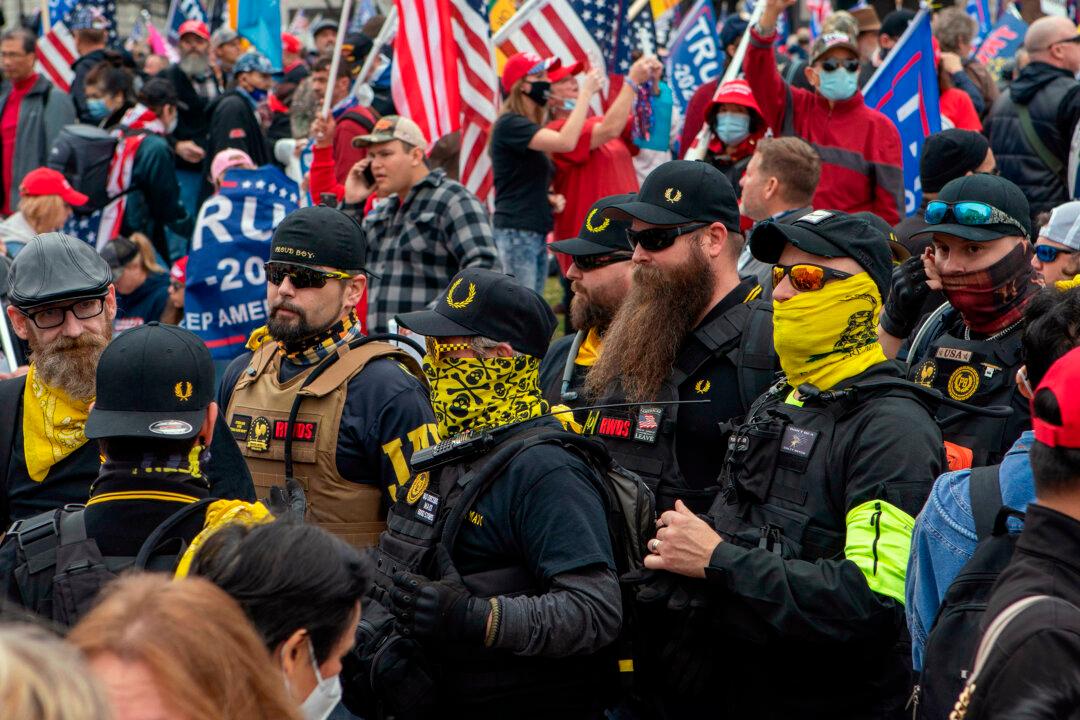Defense attorneys in the Proud Boys seditious conspiracy trial in Washington learned late on March 22 that one of their own defense witnesses who was about to testify had worked as an FBI informant for at least 22 months.
They asked for an emergency hearing before U.S. District Judge Timothy Kelly and filed a motion to compel the U.S. Department of Justice to disclose whether the witness has been spying on the defense team.





